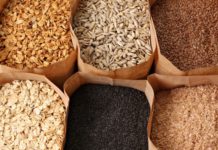LEGUAAN – agile reptile that assists in maintaining ecological balance in aquatic ecosystems
Bosch Capital has been appointed by environmental and water governance, risk and compliance specialists – CBSS – to support the commercial development of the new LEGUAAN™ Software-as-a-Service (SaaS) water quality monitoring, data visualisation and reporting tool. This project is supported by the WADER programme of the Water Research Commission (WRC).
CBSS has developed this water resource management tool to facilitate the efficient conversion of water monitoring data into meaningful visual graphs and reports that meet specific requirements of each organisation and that facilitate improved monitoring and compliance.
“In this exciting venture with CBSS, the Bosch Capital team is conducting a market analysis study that will inform the development of a commercial model and business plan for the LEGUAAN SaaS tool. This project also includes the development of a high-level financial model, to enable the analysis of the key financial drivers of the business,” explains Rajiv Paladh,Manager: Advisory and Funding at Bosch Capital. Bosch Capital is a member of the Bosch Holdings group of multidisciplinary consulting engineering companies. Bosch Capital offers advisory, capital raising and investment solutions, which forms part of an integrated financial and engineering solution for clients with Bosch Projects.
“This study is crucial in assisting CBSS to ensure that LEGUAAN will offer an excellent value proposition to customers. The market analysis for this project is expected to be completed by end January 2021.”
The founding member of CBSS, Carin Bosman, had this to say regarding the monitoring tool: “We derived the name LEGUAAN from the South African water monitor – an agile reptile that plays an essential role in maintaining ecological balance in aquatic ecosystems. Key advantages of this cost-efficient system are time-savings for the user, coupled with the assurance that all data is accurately converted into meaningful information and graphical representations. Without the correct interpretation of results, it is impossible to make informed decisions about the management adjustments that are necessary to improve consumption, reduce water footprint and minimise impacts on water quality, as well as reduce liability risks for the organisation.”
Once the scientific integrity of the data is verified, it is swiftly converted into interactive and intelligible charts, such as Mauchino diagrams (salt balances including nitrates), time-series graphs (single year, multi-year and stacked for seasonal comparison), box-plot diagrams for statistical evaluations, and Ficklin graphs. Graphs and reports are provided online to users in a secure, interactive dashboard format, thus enabling users to download and present it to their internal and external stakeholders.
Reports and graphs generated by this water resource management tool can be set up to compare a user’s data to the limit values in the water-use licence, or any other site-specific limit value specified by a government agency. CBSS specialists are also able to assist with the development of scientifically correct site-specific limit values in accordance with the new Department of Water and Sanitation (DWS) policy on Water Quality Management.
CBSS has also developed an App, WaterMonsterTM, that automates the capture of all critical field data that is necessary in the interpretation of water quality monitoring results. These factors include the type of sample, weather conditions at the monitoring location and observations about the colour, odour and flow of water. Relevant field readings of variables, such as temperature, electrical conductivity, and dissolved oxygen, are digitally captured.
The WaterMonster App also documents the geo-location of where the sample is being taken, captures a photograph of the monitoring location, and, if a sample could not be taken, records the reasons or obstacles for this. If a field sampler needs to purge a borehole before taking a groundwater sample, the purge-time is automatically calculated. Certain variables, such as free chlorine and dissolved oxygen, must be measured at the sampling location because concentrations change during transportation to a laboratory. All field observations are immediately available in a digital format and the data is submitted instantaneously to a dedicated, pre-determined email address in PDF-format.
By combining the capturing efficiency of the WaterMonster App, with meaningful visualisations of LEGUAAN, users are able to convert unmanageable spreadsheets and lab reports, into easily clear, visualised management information which can be used to inform actions of operators that contribute to improving water quality around South Africa.








